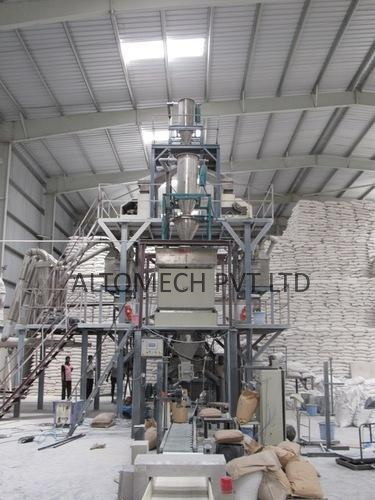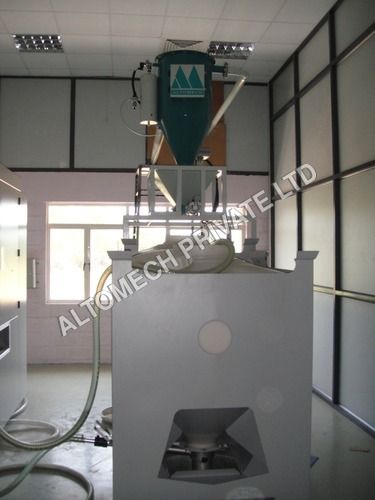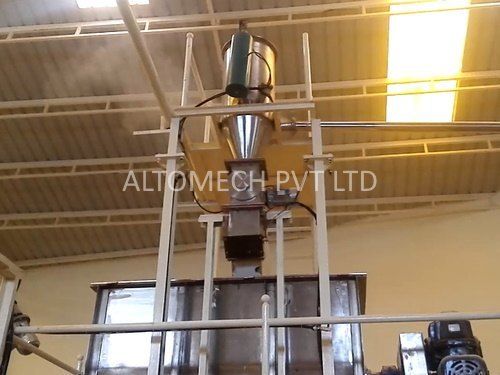- Home Page
- Company Profile
-
Our Products
- Vacuum Cleaner
- Foundry Sand Cleaning Machine
- Centralised Vacuum Cleaner
- Portable Industrial Vacuum Cleaner
- Industrial Warehouse Vacuum Cleaner
- Industrial Vacuum Cleaner -AMSC-E Series
- Bagged Vacuum Cleaner
- Industrial Vacuum Cleaner E30
- Industrial Vacuum Cleaner E50
- Industrial Wet And Dry Vacuum Cleaner
- Centralized Vacuum Cleaner
- Portable Vacuum Cleaner
- Food Grade Vacuum Cleaner
- Wet Dry Vacuum Cleaner - Amsc Models
- Three Phase Vacuum Cleaner
- Vacuum Cleaning Equipment
- Industrial Vacuum Cleaner
- Single Phase Heavy Duty Vacuum Cleaner
- Dust Collector
- Industrial Wet Dust Collector
- Cartridge Dust Collector
- Carbon Powder Dust Collector
- Spicy Dust Collection System
- Dust Collection System
- Dust Collector Cyclones
- Down Draft Dust Collector
- Industrial Dust Extraction System
- Dust Collector For Flour Mill
- Dust Collector For Woodworking
- Industrial Dust Control System
- Industrial Baghouse Dust Collector
- Cartridge Dust Collector Systems
- Industrial Dust Extraction Unit
- Industrial Sawdust Collection System
- Portable Industrial Dust Collection System
- Warehouse Dust Collector
- Pulse jet Dust Collector
- Centralised Dust Collector
- Downflow Dust Collector
- Booth Type Dust Collector
- Wood Dust Collector
- Unit Dust Collector
- Paint Booth Dust Collector
- Bag Dust Collector
- Buffing Dust Collector
- Cement Silo Dust Collector
- Reverse Pulse Dust Collector
- Dust Control Booth
- Down Flow Dust Collector
- Modular Dust Collector
- Centralized Dust Extraction System
- Dust Collection System for Spicy Industries
- Pharmaceutical Dust Collector
- Industrial Dust Collection System
- Industrial Cyclone Dust Collector
- Industrial Dust Collector
- Industrial Portable Dust Collector
- Dust Collector Machine
- Vacuum Conveyor
- Pneumatic Vacuum Conveyor
- Vacuum Conveyor Systems
- Pharmaceutical Vacuum Transfer System
- Vacuum Pneumatic Conveying System
- Material Vacuum Transfer System
- Pharmaceutical Vacuum Conveyor
- Vacuum Conveyor for Cement Industries
- Powder Conveying Equipment
- Vacuum Conveyor for Powder
- Vacuum Conveying System For Grain Unloading
- Portable Vacuum Conveyor
- Vacuum Conveyor
- Lean Phase Vacuum Conveying System
- Carbon Powder Conveying System
- Pneumatic Shell Sand Conveyor
- Vacuum Conveyor for Food Industries
- Vacuum Conveyor for Chemical Industries
- Vacuum Conveyor for Plastic Industries
- Vacuum Conveyor for Metal Chip Industries
- Vacuum Conveying System
- Vacuum Powder Conveying System
- Vacuum Conveying System For Powder
- Food Grade Conveyor
- Sand Conveying System
- Chemical Vacuum Conveyor
- Spillage Conveying System
- Pneumatic Batch Conveying System
- Sugar Vacuum Conveyors
- Hopper Loader Vacuum Conveyor System
- Tea Powder Conveying System
- Vacuum Conveyor System
- Vacuum Loader
- Plastic Granular Conveyor System
- Wood Chip Vacuum Conveyor
- Vacuum Conveyor For Sugar Powder
- Vacuum Conveyor for Industrial Application
- Pneumatic Conveyor
- Stainless Steel Pneumatic Conveyor
- Material Pneumatic Transfer System
- Pneumatic Conveying System
- Pneumatic Conveying System For Food Industries
- Pneumatic Conveying Unit
- Pneumatic Conveyor For Industrial Application
- lean Phase Pneumatic Conveying
- Pneumatic Transfer System For Powder
- Pneumatic Powder Transfer System
- Food Grade Pneumatic Conveyor
- Pneumatic Powder Conveying System
- Pneumatic Conveying System for Powder
- Pneumatic Grain Conveyor
- Pneumatic Transfer System for Pellets
- Pharmaceutical Pneumatic Transfer System
- Pneumatic Conveyor for Food Industries
- Pneumatic Conveyor for Pharmaceutical Industries
- Pneumatic Conveyor For Powder
- Bulk Material Conveying System
- Lime Stone Powder Conveyor
- Grain Conveying System
- Cement Conveying System
- Ash Conveying System
- Pneumatic Vacuum Conveying System
- Pneumatic Conveyor for Plastic Industries
- Pneumatic Conveyor for Cement Industries
- Pneumatic Conveyor for Metal Chip Industries
- Pneumatic Conveyor for Chemical Industries
- Pneumatic Conveyor For Cattle Feed
- Negative Pressure Pneumatic Conveying System
- Powder Transfer System
- Jumbo Bag Loading and Unloading System
- Industrial Blowers
- Bag Dump Station With Dust Collector
- Jumbo Bag Filling System
- Vacuum Cleaner
- More Info
- Branches
- Contact Us

Stainless Steel Pneumatic Conveyor
Product Details:
- Product Type Pneumatic Conveyor
- Material MS AND SS
- Type Pneumatic Conveyor
- Structure Other
- Belt Conveyor Other
- Roller Conveyor Other
- Vertical Conveyor Other
- Click to view more
X
Stainless Steel Pneumatic Conveyor Price And Quantity
- 1 Number
Stainless Steel Pneumatic Conveyor Product Specifications
- Other
- Other
- 2-10 Tonne
- Pneumatic Conveyor
- MS AND SS
- Other
- Other
- 440 Volt (v)
- Other
- 1 yr
- Pneumatic Conveyor
- Other
Stainless Steel Pneumatic Conveyor Trade Information
- Coimbatore
- 15 Number Per Year
- 30 Days
- Contact us for information regarding our sample policy
- WOODEN
- All India
- AVAILABLE
Product Description
A stainless steel pneumatic conveyor is a type of material handling system that uses air pressure to transport various types of materials within a facility. This type of conveyor is often chosen for its durability, corrosion resistance, and ability to handle materials in hygienic or corrosive environments. Stainless steel is a popular material choice for industries where cleanliness, strength, and resistance to corrosion are crucial, such as food processing, pharmaceuticals, and chemical manufacturing.
Stainless Steel Pneumatic Conveyor Specifications:
1. Power: 10 HP to 60 HP
2. Material of construction: Mild Steel or Stainless Steel
3. Voltage: 415 V
4. Frequency: 50 HZ
# Applications of Stainless Steel Pneumatic Conveyor:
Stainless steel pneumatic conveyors find applications in various industries where the transportation of materials in a hygienic, corrosion-resistant, and efficient manner is essential. Here are some common applications:
1. Food and Beverage Industry:
a. Flour and Grains: Conveying flour, grains, or other dry food ingredients.
b. Powdered Ingredients: Transporting powdered additives, flavors, and food-grade chemicals.
c. Processed Foods: Moving processed foods, snacks, and cereals.
2. Pharmaceutical Industry:
a. Drug Manufacturing: Conveying pharmaceutical ingredients and powders in a hygienic environment.
b. Capsule and Tablet Production: Transporting materials during the production of capsules and tablets.
c. API Handling: Moving Active Pharmaceutical Ingredients (APIs) safely.
3. Chemical Industry:
a. Corrosive Materials: Handling corrosive chemicals safely due to the corrosion-resistant nature of stainless steel.
b. Powdered Chemicals: Conveying various powdered chemicals in a controlled manner.
4. Plastics and Rubber Manufacturing:
a. Resin Transport: Moving plastic resins in powder or pellet form.
b. Rubber Compounds: Conveying rubber compounds during the manufacturing process.
5. Cosmetics and Personal Care:
a. Powdered Cosmetics: Transporting powdered ingredients used in cosmetic production.
b. Liquid Ingredients: Handling liquid ingredients in a controlled manner.
6. Agriculture:
a. Seed Handling: Conveying seeds in agricultural processing.
b. Fertilizer Transport: Moving powdered or granular fertilizers.
7. Metalworking and Machining:
a. Metal Powders: Transporting metal powders in the production of metal parts.
b. Abrasive Materials: Conveying abrasive materials in metalworking processes.
8. Waste Management:
a. Recycling Facilities: Transporting recycled materials efficiently.
b. Waste Handling: Moving waste materials in a controlled manner.
9. Mining and Minerals:
a. Powdered Minerals: Conveying powdered minerals during processing.
b. Bulk Material Handling: Transporting various bulk materials in mining operations.
10. Woodworking:
a. Sawdust and Wood Chips: Conveying sawdust and wood chips in woodworking processes.
b. Wood Pellets: Transporting wood pellets for energy production.
11. Cleanroom Environments:
a. Electronics Manufacturing: Conveying sensitive electronic components in a cleanroom environment.
b. Medical Device Production: Transporting materials in a controlled environment for medical device manufacturing.
12. Ceramics and Glass Industry:
a. Powdered Ceramics: Handling powdered ceramics during production.
b. Glass Manufacturing: Conveying materials in glass production processes.
Frequently Asked Questions (FAQs):
Q. What is a pneumatic conveyor?
Ans: A pneumatic conveyor is a material handling system that uses air pressure to transport bulk materials through a pipeline. It is commonly employed in industries where the gentle handling of materials or a dust-free environment is essential.
Q. Why use stainless steel in pneumatic conveyors?
Ans: Stainless steel is used for its corrosion resistance, durability, and hygienic properties. It is particularly suitable for industries such as food processing, pharmaceuticals, and chemicals where cleanliness and resistance to corrosion are crucial.
Q. What types of materials can be conveyed using a stainless steel pneumatic conveyor?
Ans: Stainless steel pneumatic conveyors are versatile and can handle a wide range of materials, including powders, granules, grains, pharmaceutical ingredients, chemicals, and more.
Q. What industries commonly use stainless steel pneumatic conveyors?
Ans: Industries such as food and beverage, pharmaceuticals, chemicals, plastics, agriculture, metalworking, waste management, mining, electronics, ceramics, and more commonly use stainless steel pneumatic conveyors.
Q. What are the advantages of stainless steel pneumatic conveyors?
Ans: Advantages include corrosion resistance, durability, hygienic design, suitability for cleanroom environments, and the ability to handle various materials without contamination.
Q. How does a pneumatic conveyor work?
Ans: Pneumatic conveyors work by using compressed air or another gas to create a flow that carries materials through a closed pipeline. The air velocity is controlled to ensure the gentle handling of materials.
Q. What safety features should be considered for pneumatic conveyors?
Ans: Enclosed systems to prevent dust and material spillage, sensors for monitoring system operation, and alarms for potential issues are common safety features.
Q. Can stainless steel pneumatic conveyors be customized for specific applications?
Ans: Yes, stainless steel pneumatic conveyors can often be customized to meet specific material handling requirements, including adjustments for conveying speeds, pipeline layouts, and integration with existing systems.
Q. What maintenance is required for stainless steel pneumatic conveyors?
Ans: Regular cleaning is essential, especially in industries with strict hygiene standards. Routine inspections of components and adherence to maintenance schedules help ensure proper functioning.
Q. Are there regulatory standards for pneumatic conveyors?
Ans: Depending on the industry, there may be specific standards and regulations that stainless steel pneumatic conveyors need to comply with. It's important to be aware of and adhere to relevant standards.
Q. How do I choose the right stainless steel pneumatic conveyor for my application?
Ans: Consider factors such as the type of material to be conveyed, required hygiene standards, the corrosiveness of the materials, system capacity, and integration with existing processes when selecting a pneumatic conveyor. Working with experienced suppliers and manufacturers is advisable.
Enter Buying Requirement Details
Other Products in 'Pneumatic Conveyor' category
 |
ALTOMECH PRIVATE LTD.
All Rights Reserved.(Terms of Use) Developed and Managed by Infocom Network Private Limited. |

 English
English Spanish
Spanish French
French German
German Italian
Italian Chinese (Simplified)
Chinese (Simplified) Japanese
Japanese Korean
Korean Arabic
Arabic Portuguese
Portuguese


